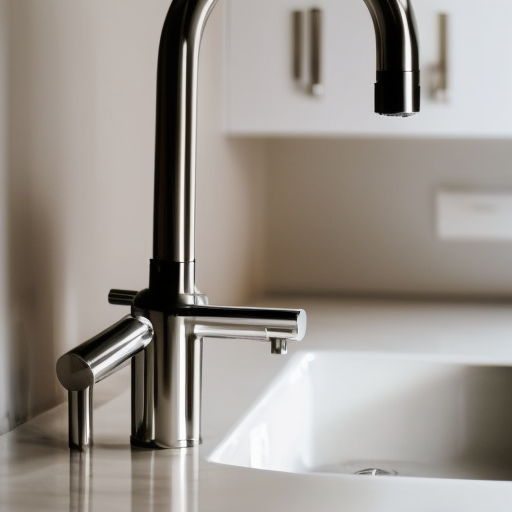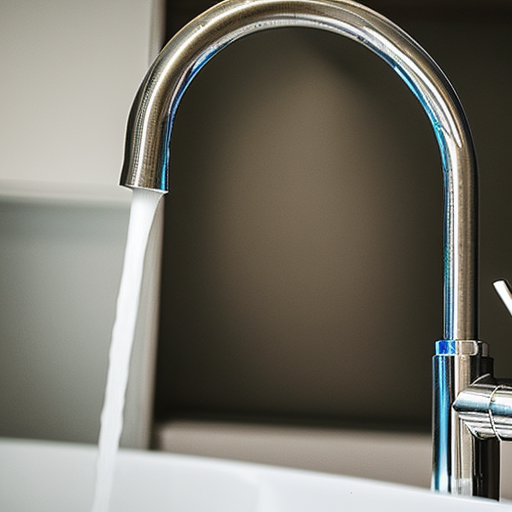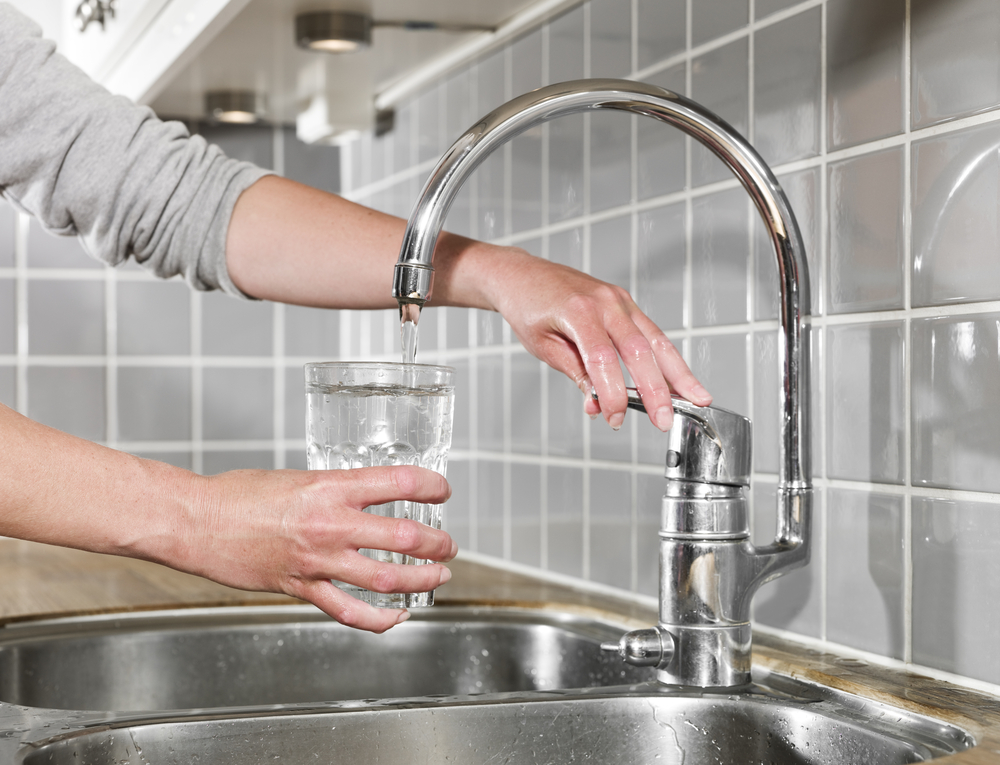Last Updated on January 26, 2023
Are boiling water taps safe? It’s a question that many UK consumers are asking as they consider adding one of these innovative appliances to their home or garden. But before you make the leap, it’s important to understand both the pros and cons associated with boiling water taps, so you can ensure your safety when using them. In this blog post, we will discuss all aspects of boiling water tap safety – from tips on how to use them safely to maintenance advice for keeping yours in good working order. So read on and find out if a boiling water tap is really right for you!
Table of Contents:
- Boiling Water Taps: The Pros and Cons
- Boiling Water Tap Safety Tips
- Boiling Water Tap Maintenance
- Conclusion
Boiling Water Taps: The Pros and Cons
Boiling water taps are becoming increasingly popular in UK households. They offer a convenient way to get boiling hot water for drinks, cooking and cleaning without having to wait for the kettle to boil or use a microwave. But there are pros and cons that come with this technology.
One of the main advantages of boiling water taps is convenience. With one tap, you can have instant access to both cold and boiling hot water at any time, making it ideal for busy families who need quick access to hot drinks or meals on the go. It also eliminates the need for kettles, saving counter space in your kitchen while reducing energy consumption as well as costs associated with heating up multiple cups of tea or coffee throughout the day.
Another benefit is safety; because you don’t have to manually fill up a kettle from a sink tap, there’s less risk of scalding yourself when pouring out hot liquids – especially if you have young children around. Boiling water taps also reduce limescale build-up due to their filtration systems which filter out minerals before they reach your cup or pan.

On the other hand, installing a boiling water tap can be expensive depending on what type you choose – some models cost upwards of £500. Plus, they require regular maintenance, such as descaling every 6 months and replacing filters every 12 months, so it’s important that homeowners factor these costs into their budget when considering buying one. Additionally, even though they save energy compared with using an electric kettle all day long, they still consume more electricity than just running cold taps alone – something worth bearing in mind if you’re looking for ways to reduce your carbon footprint too.
Overall, while there are benefits associated with owning a boiling water tap, such as convenience and safety, there are drawbacks too. These include high installation costs plus ongoing maintenance requirements, which should be taken into consideration before investing in one.
Overall, boiling water taps offer a convenient and efficient way to access hot water in the home. However, there are some safety considerations that should be taken into account before investing in one. To learn more about how to safely use a boiling water tap, read on for our top tips.
Boiling Water Tap Safety Tips
When it comes to boiling water taps, safety should always be your top priority. Boiling water taps are a great way to get hot water quickly and easily, but they can also be dangerous if not used properly. Here are some key safety tips for using boiling water taps:
1. Keep children away from the tap – Boiling water is incredibly hot and can cause serious burns if touched or splashed onto skin. Make sure that any children in the house know never to touch or go near the tap when it’s in use.
2. Don’t leave the tap unattended – Never leave a boiling water tap running while you’re out of the room or away from home, as this could lead to an accident occurring due to overfilling or spilling of hot liquid on someone else in your household.
It is important that you have your boiling water tap installed correctly by a qualified professional to avoid any risks of leaks, scalding temperatures and other potential hazards. Poor insulation around pipes can cause them to heat up too much, which could lead to injury or damage caused by steam escaping from the pipes.
3. Check temperature settings regularly – The temperature setting on most modern models allows you to adjust how hot the boiled-water will come out of your boiler (usually between 60°C-98°C). It’s important that you check these settings every now and then just to make sure they haven’t been changed accidentally, which could result in very high temperatures being produced when using your boiler, causing potential harm/injury if handled incorrectly.
To ensure safe operation at all times, it is recommended that regular maintenance checks are carried out on boilers. This includes checking for signs of corrosion or rusting inside tanks and pipes, ensuring seals remain intact and replacing filters where necessary. Allowing an experienced engineer to carry out these tasks will help keep boilers working safely and efficiently for years to come.
Taking the necessary safety precautions when using boiling water taps can help ensure a safe and enjoyable experience. To maintain your tap in good condition, it’s important to follow the regular maintenance instructions outlined in the next section.
Boiling Water Tap Maintenance
They offer a convenient way to get hot water quickly without having to wait for it to boil on the stove or kettle. However, like any appliance, boiling water taps need regular maintenance if they are going to remain safe and efficient.
To keep your boiling water tap running smoothly, you should clean it regularly with warm soapy water and a soft cloth. This will help remove any dirt or debris that could build up over time and cause problems with its operation. You should also check the tap for signs of wear and tear, such as cracks or corrosion, which can occur due to age or usage patterns. If you notice anything out of the ordinary, then it is best to have your tap checked by an experienced plumber who can advise on what needs to be done next.

It is important not only to clean but also to inspect your boiling water tap regularly, as this helps ensure that all components are working correctly and safely at all times. Make sure that there is no leakage from either side of the unit – this could be indicative of a problem with seals or gaskets, which would need replacing before further use occurs otherwise, risk damage being caused by escaping hot liquid. It’s also worth noting that most manufacturers recommend descaling their products every six months too; something which again can be done easily enough using specialist solutions available online/in stores near you.
Finally, always remember to never leave children unattended around boiling water taps as they may not understand how dangerous these appliances can be when used incorrectly. Even just turning them off after use is not enough protection against scalding accidents occurring, so please take extra care when supervising youngsters near these devices.
Conclusion
In conclusion, boiling water taps are a great way to save time and energy when it comes to making hot drinks or cleaning up. However, it is important to be aware of the potential risks associated with them and take steps to ensure that they are properly maintained for maximum safety. With proper maintenance and care, you can rest assured that your boiling water tap will remain safe for years to come – so ask yourself: Are boiling water taps safe? The answer is yes!
Paul is the type of person who never met a problem he couldn’t fix. He can always be found tinkering with something in his house, even if it isn’t broken! His tips and tricks are often shared on our site. He’s the one you call when something breaks because he has been known to improvise fixes for everything from leaky faucets to malfunctioning dryers.

